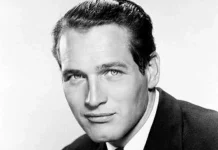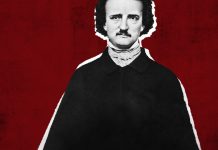We offer you 40 phrases of philosophers to cultivate the mind. Philosophy is the art to think about the great questions of life and give them an answer. Therefore, along with complex and encrypted philosophical systems, the discipline has a practical application that helps us reflect on the world and resolve certain doubts.
These are some phrases of philosophers about life and other existential questions that help to reflect and think.
- More philosophical phrases: The 50 best phrases of Socrates to think.
40 phrases of philosophers to think and reflect on life
Throughout the universal history of philosophy, the great thinkers have not only bequeathed us philosophical systems but also famous quotes to reflect on a concept in a synthetic way , and to think of an idea .
These are forty phrases of philosophers about love, about life, about the existential questions of man, to think and to reflect.
1. I only know that I know nothing (Socrates)
It is one of the best-known sentences in the history of philosophy because it summarizes in six words what the very function of the philosophical discipline is. It was expressed by the father of political philosophy and ethics, Socrates, who, together with Plato and Aristotle, systematized classical philosophical thought and gave it continuity.
His greatest contribution was the Socratic method, which is an examination of the interlocutor through questions to determine the degree of knowledge on a subject. Therefore, for Socrates, philosophy consisted of starting from skepticism about a subject in order to accumulate the maximum of knowledge: “I only know that I know nothing.”
2. The nature of man is always the same, what differentiates them are his habits (Confucius)
Confucius is not only the founder of one of the oldest Eastern religious traditions, Confucianism, but also a spiritual inspirer for many people around the world. His phrases have become useful teachings for the spiritual path towards self-perfection.
In this sentence we find a good part of his thought: Confucius believed that the body of man, his nature, was an empty shell if he did not manage to cultivate the spirit and take it to perfection. Habits, good actions, is what makes man a different being, and he will only reach fulfillment through them.
3. The leisure of the Spirit is a form of freedom (Aristotle)
Aristotle, the father of logic and biology, the inspiration of Western philosophy throughout history, was convinced that unhappiness was the result of anxiety arising from a bad moment in life.
For this reason, he deduced that happiness can only be reached through the path of knowledge and the cultivation of the mind, and that “leisure of the spirit”, that is, dedicating time to forming the conscience and giving it knowledge, is the only way to achieve happiness. a full and satisfying life.
4. Knowledge is the certain opinion (Plato)
Phrases like this one from Plato laid the foundations, in classical Greece, of western philosophical thought, which after the lapse of medieval scholasticism would take up Descartes again and expand German idealism from Kant to Hegel: the belief that the Truth can only be reached with detailed analysis of knowledge.
The rest is pure perception (the senses deceive us) and unfounded opinion. To know what truly is , one must start from one’s own conscience and its detailed study of reality, which is knowledge.
5. Happiness is in freedom, and freedom in courage (Pericles)
There are many phrases of philosophers about life, and this is one of them: it is about happiness and its meaning.
One of the main obsessions of ancient thinkers was to reflect on happiness and how to access it. One of its greatest exponents, Pericles, defined it as a reward that comes after an arduous journey when freedom has been achieved (which is a greater good) through courage.
6. When you are strong, show weakness; when you are weak, be strong (Sun Tzu)
Sun Tzu, as well as a philosopher, was an ancient Chinese military strategist and is best known for his book The Art of War, which continues to influence military thought today.
However, as in the quote that concerns us, Sun Tzu’s phrases transcend the military sphere and are a teaching in the day to day of life itself. Here he teaches ustake advantage of our weakness and be humble in our strength.
7. Learning to die, you learn to live better (Plato)
One of the great themes of philosophy, death, also anguished the ancients. Since then, the great thinkers have dedicated themselves to trying to explain death and cushion the fear it provokes in us. Again we have to go to Plato to find the answer.
In this sentence we find the crux of the matter: banishing death from our thoughts only generates more frustration, and the only way to give true value to life is by being aware that we are going to die .
8. To err is human, but only the stupid persevere in the error (Cicero)
One of the greatest thinkers of Roman times, Cicero, created one of the most solemn epigraphs of Ancient Rome: Errare humanum est.
But in this quote, in addition to humbly acknowledging man’s vulnerability, he adds one of the bad vices that according to him is embedded in man’s nature: the pride of not knowing how to recognize a mistake and wanting to persist in it.
9. How happy the peasants would be, if you knew that they are happy! (Virgil)
Philosophy again brings up the subject of happiness, but this time the author, Virgil, warns us that it is we ourselves through ignorance who deprive ourselves of freedom.
In addition, when referring to the peasants, Virgilio conveys the idea thatIt doesn’t take much wealth to be happy , but humility, a simple life, and the awareness of happiness itself. That’s enough.
10. Time is a great veil suspended in front of eternity as if to hide it from us (Tertullian)
Tertullian was one of the fathers of the Christian church, a great influence on Western Christianity, and he reflected on time and eternity, giving history this wonderful phrase. In it he stages life as a theater in which time is an appearance that hides , behind, the great Truth: eternity.
Tertullian sees earthly life as something temporary, temporary, extinguishable and subject to something much more important, heavenly and eternal life.
11. If there is a God, where do evils come from?
And if it does not exist, where do the goods come from
(Boethius)
Boethius was one of the founders of Christian philosophy in the West, but far from falling into a theology based only on faith, he came from a Neoplatonic tradition based on ethics and the influence of the exact sciences. Therefore, skepticism and scientific rigor and knowledge were part of his intellectual code.
In this sentence Boethius makes a play on words that questions us about the existence of God. The conclusion is that we should not always look for excuses in the figure of God, but that good and evil come from the free actions of man.
12. The measure of love is to love without measure (San Agustin)
Phrase about love. Saint Augustine is the most influential thinker of Christianity in the first millennium. In addition to creating a system of thought, he was a wonderful writer who made very suggestive puns. This is one of them.
And furthermore, he sums up exactly what Saint Augustine thought. He believed that man was composed of body and soul, and that he accessed happiness through the enrichment of the soul. This could only be done by reaching out to God, and he is reached by loving without reservation, banishing feelings of hatred and resentment.
13. One must not assume a plurality without being necessary (William of Ockham)
This is a more enigmatic phrase, more inaccessible, more complicated. But very useful to penetrate the thought of this Franciscan priest, William of Ockham, who made a great contribution to medieval philosophy in the field of logic.
His greatest contribution was the rule known as “Ockham’s Razor”, a scientific method according to which, all other things being equal, we must believe the simplest version. Through that phrase, Ockham invites us not to let our minds fly with speculations and to base ourselves on the evidence of things . For separating Faith and Reason he was excommunicated.
14. Fear the man of a single book (St. Thomas)
Saint Thomas Aquinas was a crucial thinker for Western philosophy because, in addition to systematic theology, he developed metaphysics, influencing all subsequent thought.
In this sentence he harshly attacks dogmatism, creating the idea that the richness of philosophy lies in the variety of thoughts and the ability to share and discuss them. For that we need to have an open mind and not be blinded by an idea .
15. I think, therefore I am (Descartes)
Rene Descartes ended the period of medieval thought by connecting with the tradition of classical Greek and Roman thought, which start from the individual (humanism) to reach knowledge.
Modern philosophy is born with him, and with the phrase “I think, therefore I am” (Cogito ergo sum) which comes to say that man is as long as he thinks, because when we think we are becoming aware of ourselves , and this is the first step to meet
16. The wise man can change his mind, the fool never (Immanuel Kant)
Flow figure of modern European thought, foundation stone of German idealism, Immanuel Kant always defended intellectual rigor, philosophical work, the effort to reach the truth.
That is why he considered that recognizing the error and changing his opinion is a sign of humility that belongs only to the wise, and that instead persisting in the error is a sign of stubbornness only available to the ignorant.
17. Leisure is the mother of philosophy (Hobbes)
Thomas Hobbes is a well-known name in European philosophy, since he developed much of the English empirical system. I also leave very suggestive phrases like these for history, which explain what philosophy is: the enrichment of the spirit with the systematic and detailed study of things.
Therefore, to do philosophy you have to think, and to think you need time: leisure.
18. I do not agree with what you say, but I will defend with my life your right to express it (Voltaire)
This representative of the French Enlightenment, Voltaire, was a staunch defender of freedom of thought and opinion, and considered that everyone you have the right to express your ideashowever wrong they may be.
Saying this phrase made it clear that the most sacred thing for him is not in the truth or error of an idea, but in the need for it to be expressed.
19. Man is born free, but he is chained everywhere (John Locke)
The father of English empiricism, a philosophical doctrine that considered that knowledge was limited to experience, was also a strong defender of freedom (and that is why it is considered to his system one of the philosophical origins of liberalism).
Locke pronounced this phrase as a definition of his ideas: he considered society as an excess of laws and obligations that corrupted man and condemned him to mental and physical slavery. For Locke, man’s mission was to find his happiness.and for this he had to untie himself from all the chains.
20. The heart has reasons that reason ignores (Blaire Pascal)
This phrase has become one of the most repeated and well-known in philosophy. Pascal was a mathematician, philosopher and theologian, among other things, but even belonging to the current of thought that tried to systematize knowledge, he was basically a humble skeptic.
That is why he warned his contemporaries of the dangers of basing everything on reason, because in his opinion there are things that do not follow the rules of logic and that only the heart, intuition, can know .
21. Just as iron rusts due to lack of use, and stagnant water rots, inactivity also destroys the intellect (Leonardo da Vinci)
Personalities like Leonardo da Vinci appear once in history. His ability to think and create in such convulsively prolific ways seems otherworldly. But this phrase sums it up, in part, because in addition to the genius that was innate in him, he managed to transform his ideas into something practical.
Leonardo da Vinci is one of those tireless personalities who make his work the engine of his life, and this sentence sums up what he thought: that only through constant work can success be achieved.
22. It is a sad thing not to have friends, but it is sadder not to have enemies (Baltasar Gracian)
…and he concluded by saying: “because whoever does not have enemies, it is a sign that he does not have: nor talent that casts a shadownor value that they fear him, nor honor that they murmur at him, nor goods that they covet him, nor good thing that they envy him.
23. Everyone sees what you appear to be, few see what you really are (Machiavelli)
This monster of political thought who was Machiavelli left an enormous treasure for the history of philosophy in the form of famous quotes and ideas. This is one of them, and it also has a very practical application: it comes to say that we always keep the first impression of a person, so appearances dictate.
But it is also an invitation to go further , to know the true personality of people before making a judgment.
24. We live in the best of all possible worlds (Leibniz)
Enigmatic statement of one of the most brilliant philosophers of the modern era, which was later interpreted and caricatured by many, including Voltaire in his novel Candido.
What Leibniz, a mathematical and rationalist mind, wanted to convey was much simpler: the world we live in is the best because we have mathematical and logical rules to fix it , while the other unknown worlds are imperfect.
25. Knowledge is power (Francis Bacon)
This statement invites reflection and leaves many questions open, but fundamentally considers ignorance as a handicap for man, who cannot reach the truth and therefore is at the expense of others .
Knowledge not only makes us free, but also gives us a lot of power because it offers us more tools to face a situation .
- They’ll also make you think: 24 existential questions (deep or dumb) to ponder.
26. Man is good by nature; it is society that corrupts him (Rousseau)
This philosopher of the French Enlightenment, Jean-Jacques Rousseau, reflected on a crucial issue: is man born good or is he bad by nature?
The Romans had sentenced, for example, that man is a wolf for man, and many others believed that man is born with evil inside.
However , Rousseau created the idea that man is born good and society influences the corruption of him. It is through the relationship with other men that we begin to absorb evil, and his recipe was clear: since man cannot return to his natural state, a social contract must be made between the individual and society. .
27. Nothing great has been done in the world without a great passion (Hegel)
Modernity would not have been possible without the philosophical contributions of Hegel, probably along with Kant the most important character in modern philosophy. But his dynamic thought was in accordance with his character and his way of life: for him the only thing that makes sense in the life of man is movement.
Hegel tried to explain the world and the human being as dynamic and changing elements. He hated passivity, quiet, silence and stillness. In this phrase he invites us to change the world through passion .
28. We rarely think about what we have, but always about what we lack (Schopenhauer)
Arthur Schopenhauer spent his entire life reflecting on man’s dissatisfaction, and came to the conclusion that man was unhappy because he wants what he cannot have. He offered a somewhat extravagant solution, asceticism: if man renounces pleasures, he will stop having desires and will be happy.
This phrase sums up the deepest part of his feelings: man is unhappy because he is continually desiring, and the more he has, the more he desires. We must be happy with what we have and stop worrying about what we lack .
29. Desire is the true essence of man (Spinoza)
The great philosopher Baruch Spinoza had already pointed out before Schopenhauer this idea of the dominion that desires exercise over men. Spinoza believed that manHe is insatiable because he always wants much more than he has. With this phrase she invites us to reflect on it and to have our feet on the ground.
30. Life must be understood backwards, but it must be lived forwards (Kierkegaard)
This Danish philosopher, greatly influenced by his religious beliefs and the great anguish that always accompanied him, developed a very mystical but also very honest and valuable thought for the ethical values of modern man.
In this sentence he tells us that in order to understand who we are, where we come from and what our goal in life is, we have to look back, analyze our roots and our tradition. But at the same time we have to have hope in the future, optimism .
31. I would never die for my beliefs, because I could be wrong (Bertrand Russell)
Another giant of Western philosophy gives us this beautiful hyperbole that takes a fundamental issue to the extreme: anti-dogmatism. Russell was an exponent of liberal ideology and, as such, he believed that the importance of knowledge lies in effort and study and, at the same time, in humility about one’s own opinions.
In this sentence he teaches us that doubting oneself is the beginning to attain knowledge .
32. Anyone who trades freedom for security deserves neither freedom nor security (Benjamin Franklin)
Benjamin Franklin was, you can already guess, a fan of freedom, and in the scheme of his thought freedom is something non-negotiable, it is something to which man should aspire without renunciations or shortcuts. That is why he abhorred any political conception that tried to sacrifice freedom by putting, for example, security as an excuse.
The paradox here lies in the fact that Benjamin Franklin is one of the founding fathers of the United States, a world superpower that, as is well known, has long since sacrificed freedom for security .
33. There are no moral phenomena, but only a moral explanation of the phenomena (Nietzsche)
This is a dense and complicated phrase expressed by one of the most complex philosophers of contemporary thought: Friedrich Nietzsche. In his exposition of what is Beyond good and evil, he reflected on morality and how men approach ethical questions.
And I come to the conclusion that there is no morality that governs phenomena , and therefore is above man, but rather that this morality is modeled by the human being himself, who at each moment establishes what is right and what is wrong. it’s wrong. Therefore moral phenomena are nothing more than an interpretation.
34. Religion is the opium of the people (Karl Marx)
Karl Marx revolutionized Western thought by giving Hegel’s dialectic rules a definitive contribution: historical materialism. From this it followed that man was subject to class antagonisms which mutated through history, and which he could only get rid of through social revolution from below.
To do this, Marx offered a scientific system and, therefore, considered that everything had to be based on reason. He rejected any irrational explanation and rejected religion, which he considered a poisoning of the minds of men .
35. I am myself and my circumstance (Ortega y Gasset)
The complex philosophical world of Jose Ortega y Gasset is reflected in this sentence in which he starts from a pure individualism (“I am I”), because he understood man as the problem of life and the center of the world. But this could not develop without taking into account his environment, his circumstances.
In Meditations on Quixote, Ortega left this sentence written in which he gives a lot of weight to the circumstances as the accumulation of traditions, history and nature that determine the action of men.
36. Man is condemned to be free (Sartre)
Jean-Paul Sartre led the French existentialist movement that tried, after World War II, to restore humanism against totalitarianism. His philosophy was an invitation to fight for the radical freedom of man, and this sentence sums up precisely to what extent he was convinced of freedom as the final destiny of humanity.
37. Man is the only creature that refuses to be what it is (Albert Camus)
Albert Camus was a companion of Sartre in the French existentialist movement, and devoted himself above all to reflecting on the essence of man and his link with freedom.
This phrase summarizes the theory that Camus developed in The Rebel Man: the human being has annihilated his true essence by denying what he is, through a destructive nihilism that justifies murder for political and ideological purposes. It recognizes, therefore, a natural state of man to which one has to return: goodness .
38. We are ringing. Everything is a dream. But sometimes we wake up, just long enough to know we’re dreaming (Wittgenstein)
A wonderful phrase from a philosopher whose theories are the result of the impact of Freudian psychoanalysis and the opening of a skeptical stage in the philosophy of knowledge.
It is a phrase, however, that runs through all Western thought from ancient times to today, since we have always been interested in reflecting on whether what we are experiencing is really real or if we are living in a dream.
39. Feminism is a way of living individually and fighting collectively (Simone de Beauvoir)
Simone de Beauvoir is the most influential thinker of feminism, and in her theoretical development, within the framework of French existentialism, she wrote a very attractive and suggestive literature that is still in the libraries of many women and men convinced of her ideas.
This phrase complements another phrase by the same author (“Women are not born, they are made”) and which understands feminism as a social and cultural construction in which women have to fight for their rights and set an example in their daily practices.
40. Political correctness is modern totalitarianism (Zizek)
The philosophy of our days has in the Slovenian Slavoj Zizek a mixture of guru and “enfant terrible”, but his influence is undeniable. This phrase summarizes the rich system of thought of this current author, based on the recovery of Hegel’s dialectic and, therefore, contrary to postmodernity.
According to Zizek, one must dare to go outside the marked canons because, in today’s society, there is a political correctness that encompasses everything. For him, democracy and freedom protect this totalitarianism according to which you cannot deviate from the official discourse.
- You can also read: 41 phrases by Oscar Wilde to understand his work.






































